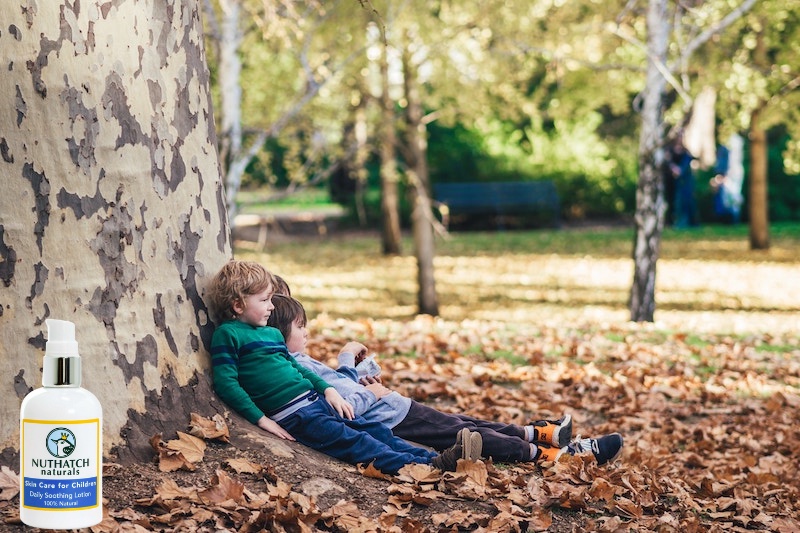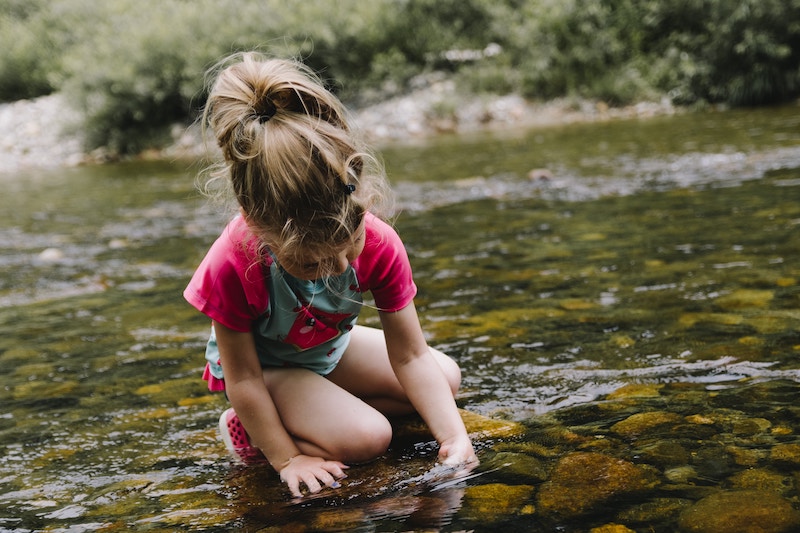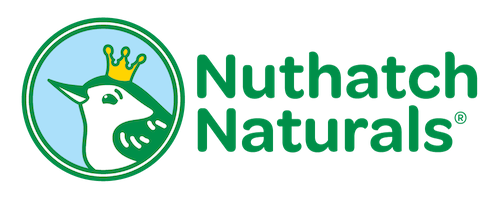
In this post I would like to discuss the safety and sustainability of cosmetic products. Both of these are important reasons to use or avoid using a product. Especially a product for children – no one wants to put something on their child’s skin that could be dangerous. It’s supposed to help, not hurt! And products for children should be as sustainable as possible. Children will experience the impacts of today’s environmental damage and climate change over the rest of their lives.
We believe that skin care products should also be easy and fun for kids to use. If your child doesn’t like a product, she won’t use it! As parents, we know that moisturizers and sunscreens should be used daily to protect and maintain skin health. But your children might need some persuasion.
What products are safe to use on children’s skin?
The trouble is that many skin care products are not great for kids. For antiaging claims (wrinkle reduction and fewer age spots), many contain alpha-hydroxy acids, salicylates, and retinol. Such ingredients can seriously irritate the skin. A lot of products also have ethoxylated ingredients: steareth and laureth-based formulas, and formulas with PEG and PPG. Ethoxylated ingredients contain 1,4-dioxane, which is a cancer-causing chemical. Some products contain aggressive preservatives that can have bad health effects. And finally, a lot of products contain potentially allergenic fragrances (sometimes labeled as parfum on ingredient lists).
We know that children’s skin is different from adult skin. The cells in the skin are smaller and kids have a thinner epidermis (skin surface layer), so that skin dries out faster and allergens penetrate the skin more easily. At Nuthatch Naturals, every product formula is tested for allergenicity in a clinical test. These tests are known as HRIPT (human repeat insult patch tests). A small amount of product is applied to volunteers and skin redness and irritation is measured. If a product is irritating, it will not pass this test. Nuthatch Naturals Daily Soothing Lotion showed no irritation whatsoever in a 50-volunteer test. This shows that it is extremely mild to the skin.
Most major skin care brands such as Aveeno and CeraVe run HRIPT tests on all their formulas before they hit the market. But smaller brands may not. It’s often not clear if a product has been allergy tested. Products that pass the HRIPT can claim to be hypoallergenic, but the cosmetic industry is self-regulated, so you don’t know if a “hypoallergenic” product has actually passed an allergy test.

What products are best for the planet?
A core philosophy for Nuthatch Naturals is that our products should be as sustainable as possible. Today’s children will live into the next century. We owe it to them to give them a world which is cleaner and healthier than the one we inherited.
Cosmetic products are produced in large quantities and they end up in the drain and trash after use. We don’t want our products to cause pollution, so we carefully formulate them with only natural and biodegradable ingredients that don’t harm the world.
Our products are made with only natural ingredients. Synthetic ingredients are often made from fossil fuels such as petroleum. Large carbon emissions can be produced when they are made, and the products can be contaminated with trace impurities such as acrylic acid. We don’t think they are healthy or sustainable.
Packaging is a big problem for sustainable skin care, because there are no good choices in sustainable packaging. All cosmetics containers end up in the trash after use with few exceptions. One of those is the recyclable packaging promoted by Loop, which offers reusable bottles and jars for some skin care products.
There is also packaging available made out of biodegradable plastics, which would theoretically allow disposal in a composting bin. In practice, these are too expensive for daily use. And some break down by forming microplastics, small plastic particles that pollute the waterways.
For a children’s product, glass containers and even aluminum tins are not good options because of the potential for sharp edges that can hurt kids. We reluctantly went with a recyclable PET bottle for Nuthatch Naturals. PET is a plastic used in plastic beverage bottles that can readily be recycled.
How about Nuthatch Naturals?
We believe we have made the most sustainable choices for Nuthatch Naturals. The formula is safe for kids, it does not contaminate the environment, and the bottles can be recycled.
Read more about our ingredients on our Nuthatch Naturals Shop page.
